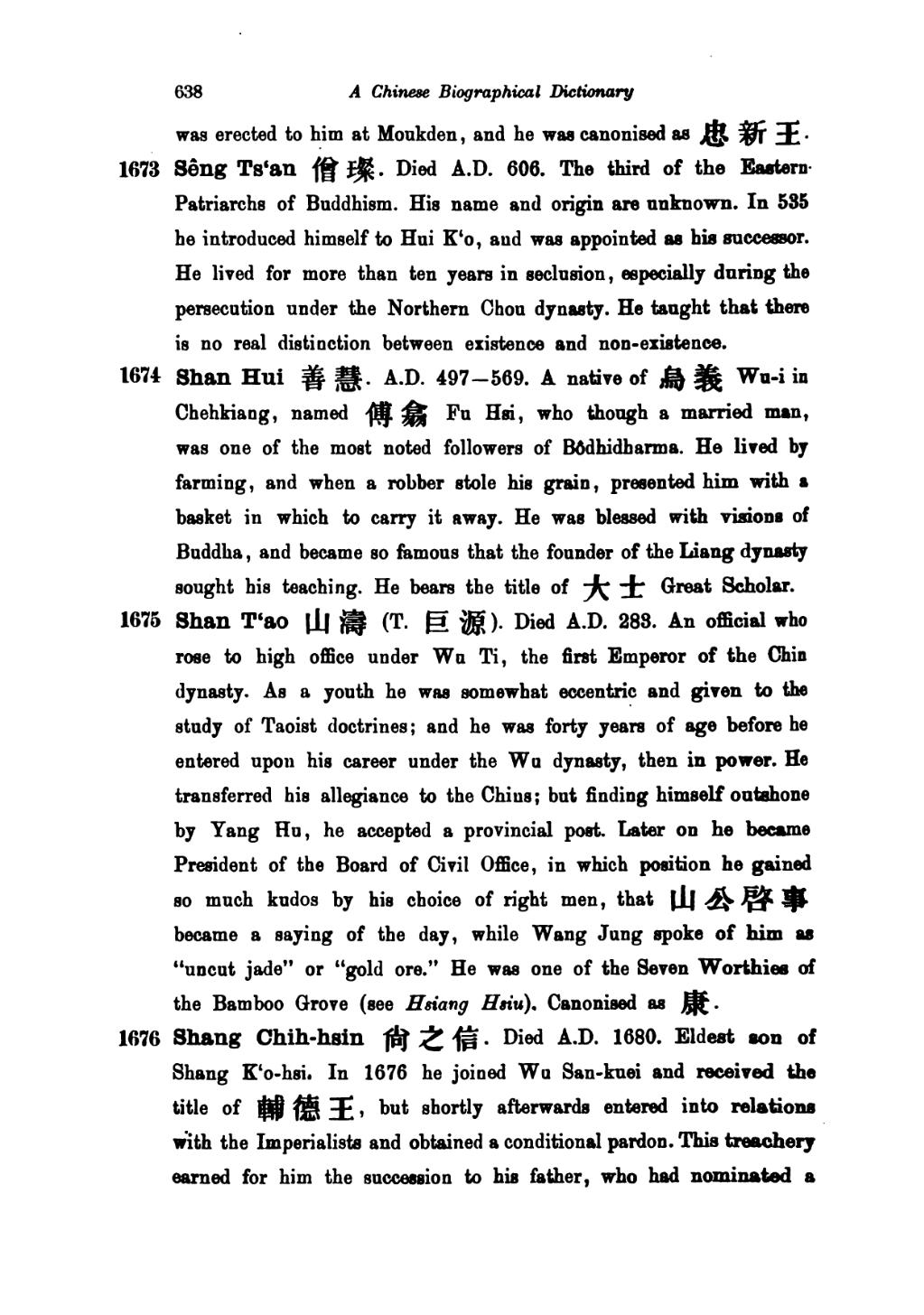was erected to him at Moukden , and he was canonised as J^ ^ ^ .
1673 Seng Ts'an ^ ^ . Died A.D. 606. The third of the Eastern Patriarchs of Bnddhism. His name and origin are unknown. In 535 he introduced himself to Hni E^o, and was appointed as his successor. He lived for more than ten years in seclusion , especially during the persecution under the Northern Ohou dynasty. He taught that there is no real distinction between existence and non-existence.
1674 Shan Hui ^ ^. A.D. 497-569. A native of j^ |^ Wu-i in Chehkiang, named "(^ ^ Fu Hsi, who thoi^^h a married man, was one of the most noted followers of Bddhidharma. He lived by farming, and when a robber stole his grain, presented him with a basket in which to carry it away. He was blessed with visions of Buddha , and became so famous that the founder of the Idang dynasty sought his teaching. He bears the title of ^ 'i^ Great Scholar.
1675 Shan T*ao \\i ^ (T. g ^ ). Died A.D. 288. An official who rose to high office under Wn Ti, the first Emperor of the Chin dynasty. As a youth he was somewhat eccentric and given to the study of Taoist doctrines; and he was forty years of age before he entered upon his career under the Wa dynasty, then in power. He transferred his allegiance to the Chins; but finding himself outshone by Yang Hu, he accepted a provincial post. Later on he became President of the Board of Gvil Office, in which position he gained so much kudos by his choice of right men , that |1| ^ ^^ ^ became a saying of the day, while Wang Jung spoke of him as "uncut jade" or "gold ore." He was one of the Seven Worthies of the Bamboo Grove (see Hsiang Hsiu)^ Canonised as j^.
1676 Sliang Chih-hsin i^ :tr'^' ^^ ^'^' ^^^^' '^^^^^ ^on of Shang E'o-hsi. In 1676 he joined Wa San-knei and received the title of $9 ^ £ 9 but shortly afterwards entered into relations with the Imperialists and obtained a conditional pardon. This tareaohery earned for him the succession to his father, who had nominated a

